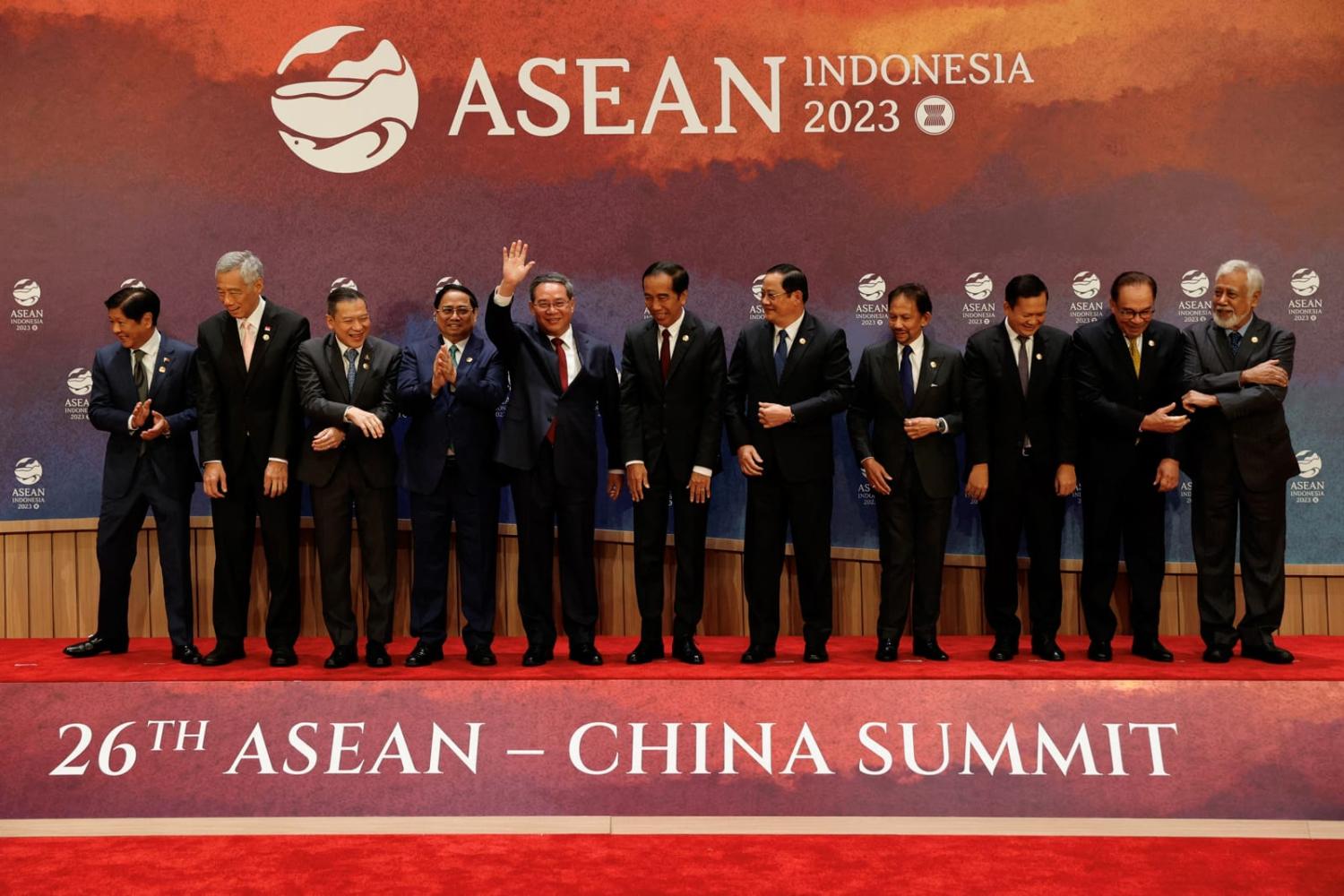Trust (or the lack of it) seems to be the central theme in describing relations between the Association of Southeast Asian Nations and China. Several ASEAN leaders emphasised this point during the leaders’ summit last week in Jakarta.
Indonesian President Joko Widodo pressed the trust question during talks ASEAN held with China in conjunction with the ASEAN summit, stating cooperation “can only be done if we have trust in each other, which of course needs to be developed and maintained by all parties”.
Malaysia’s Prime Minister Anwar Ibrahim echoed the point, stressing that future collaboration would need to recognise that “we take a strong independent stance as far as protecting our country’s interests and the interests of the region”.
Both ASEAN leaders hit the right note, given there is a distinct lack of trust for China among Southeast Asian elites. According to The State of Southeast Asia 2023 survey of regional opinion published by the Singaporean Yusof Ishak Institute of Southeast Asian Studies (ISEAS), most respondents from ASEAN member states are worried about China’s growing regional strategic and political influence. When asked to indicate who ASEAN should choose if it were forced to align itself with either China or the United States, most respondents chose the latter.
Earlier this year, during an online forum, Tommy Koh, Singapore’s former top diplomat, pointed out that despite China’s political and economic influence within ASEAN member states, the region worried about its efforts to use economic power to influence Southeast Asian states coercively.
Maritime disputes are the major flashpoint. Brunei, Malaysia, the Philippines and Vietnam (as well as Taiwan) dispute China’s sweeping claim to the South China Sea, and Koh pointed to China’s actions against the Philippines as an example of behaviour that generated broader distrust. Whether this was via economic coercion to punish the Philippines, such as followed Manila’s decision to refer the case for international arbitration in 2014, or more recent harassment of fishing vessels and coast guard ships, Beijing had done itself no favours with ASEAN.
And while China talks of diplomacy and negotiation to solve the disputes, the aggressive actions taken instead exacerbate the trust deficit. The lingering example is President Xi Jinping claiming in 2015 that China did not intend to militarise the South China Sea, only to see that claim debunked as runways and military installations have been built on several Chinese artificial islands in the region.
China’s rhetoric consequently falls flat. When China’s Premier Li Qiang told ASEAN leaders last week that any disagreements or differences could be dealt with through dialogues and consultation to ensure the South China Sea is a “sea of peace, friendship and cooperation”, the claim hardly seemed credible. Barely a month before the ASEAN summit, China had published an official map again reinforcing its claim in the South China Sea. This was preceded by regular harassment of Filipino vessels operating legally within the Philippines Exclusive Economic Zone (EEZ) by the Chinese Coast Guard and militia ships, with the coast guard vessels using water cannons against Filipino vessels. China also sent its research, Coast Guard and civilian ships into Vietnam’s EEZ, while harassing Vietnam’s operations to explore oil and gas.
Plainly, using water cannon against vessels from the Philippines and the continuous harassment of fishing vessels from ASEAN states is not consistent with the spirit of “friendship and cooperation” that Li Qiang had emphasised.
Yet China’s political leadership and media seek to blame interference by outside powers (often a reference to the United States) as the cause of their adverse relations with ASEAN. However, this fallible narrative assumes that ASEAN member states do not have agency in determining threat perceptions and defence policy. Filipino President Ferdinand Marcos Jr directly addressed this misplaced perception in remarks at the recent ASEAN summit:
The Philippines firmly rejects misleading narratives that frame the disputes in the South China Sea solely through the lens of strategic competition between two powerful countries. This not only denies us our independence and our agency, but it also disregards our own legitimate interests.
This mistrust between ASEAN and China will not be addressed overnight. Beijing must recognise that its behaviour in the South China Sea is the obstacle to closer cooperation with ASEAN. It must have the political will to bridge the gap between its rhetoric and action – otherwise it will find few regional friends in future.

